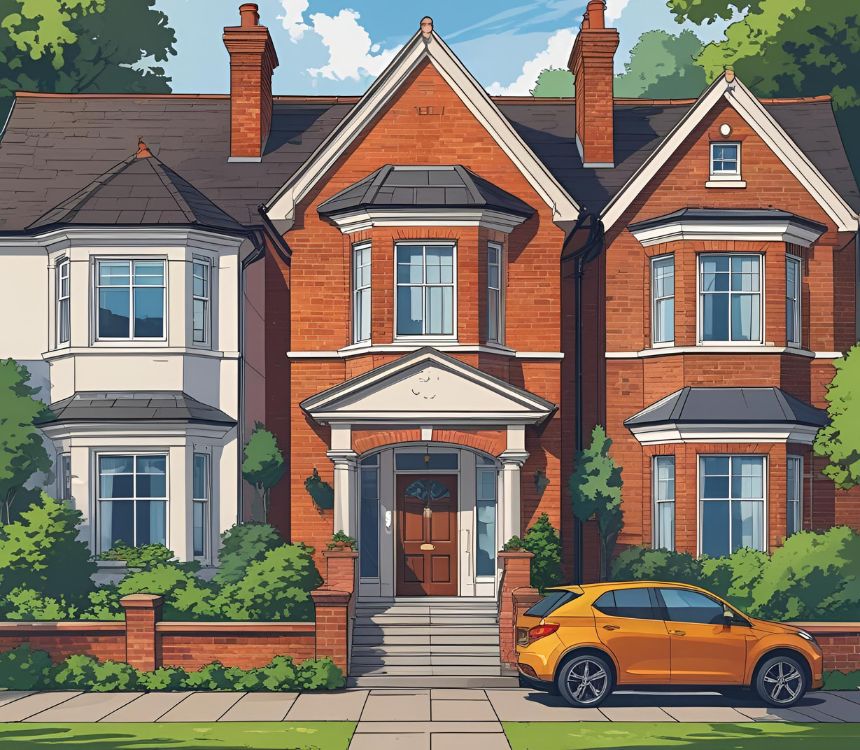Buying a home is exciting, but it can also be overwhelming—especially when it comes to mortgage surveys and valuations. Knowing what type of valuation or survey you need and understanding the associated fees can save you both time and money. Here’s a straightforward guide to help you navigate mortgage valuation surveys in the UK.
What is a Mortgage Valuation Survey?
A mortgage valuation survey is a basic assessment carried out by your lender. Its purpose is simple: to confirm that the property you’re buying is worth at least as much as you’re borrowing. While this is mandatory for lenders, it’s important to note that it’s not an in-depth examination of the property’s overall condition.
Looking for mortgage advice you can trust?
Speak to our expert brokers today – we’ll guide you through every step, including essential property searches.
Types of Mortgage Surveys Available in the UK
There are three main types of property surveys in the UK that homebuyers often consider:
Mortgage Valuation (Basic Valuation)
- Purpose: Required by lenders to verify the property value.
- Detail Level: Limited—usually just a quick check.
- Typical Fees: Between £150 and £500 depending on property value.
- Suitable For: Properties that are newly built, relatively new, or recently renovated.
HomeBuyer’s Report (Home Survey Level 2)
- Purpose: A more detailed survey identifying any significant structural issues or urgent repairs.
- Detail Level: Moderate; gives clear advice on issues needing attention.
- Typical Fees: Usually between £400 and £1,000.
- Suitable For: Standard properties built within the last 100 years, and in reasonable condition.
Building Survey (Level 3 Survey)
- Purpose: The most comprehensive survey available, providing an in-depth analysis of the property condition, including structural integrity.
- Detail Level: Very thorough, detailing major and minor issues with guidance on repairs.
- Typical Fees: Between £700 and £1,500 or more, depending on the size and age of the property.
- Suitable For: Older properties, listed buildings, or homes requiring major renovation.
Factors Affecting Mortgage Survey Fees
Mortgage survey fees can vary widely based on several factors:
- Property value and size: Higher-value or larger properties typically incur higher survey fees.
- Location: Surveys in urban or expensive areas may cost more.
- Surveyor qualifications: Chartered surveyors (members of RICS) usually charge more but offer greater expertise.
- Type of property: Older properties, listed buildings, or unconventional structures usually demand higher fees due to complexity.

How to Choose the Right Survey
Selecting the right survey depends on your property’s age, condition, and your budget:
Building Survey is recommended for older or complex properties where potential hidden issues could be costly.
Basic Valuation is enough if you’re confident about the property’s condition.
HomeBuyer’s Report suits most buyers looking for peace of mind without extensive expense.
How to Choose the Right Survey
Selecting the right survey depends on your property’s age, condition, and your budget:
- Basic Valuation is enough if you’re confident about the property’s condition.
- HomeBuyer’s Report suits most buyers looking for peace of mind without extensive expense.
- Building Survey is recommended for older or complex properties where potential hidden issues could be costly.
Is the Mortgage Valuation Survey Enough?
In short, usually not. Mortgage valuations protect lenders, not buyers. For your own protection, investing in at least a HomeBuyer’s Report is advisable, especially when buying older homes or properties showing visible wear and tear.
The Bottom Line
Understanding mortgage valuation survey types and fees helps you make informed decisions. Always choose the survey that suits your needs and property type, and remember—a little extra spent upfront could save thousands later.
By choosing carefully and being informed, you ensure your property investment in the UK is a sound one.
FAQs
Typically, the lender arranges the mortgage valuation to confirm property value independently. However, you can organise additional surveys yourself, such as a HomeBuyer’s Report or Building Survey, for personal reassurance.
Yes. Mortgage valuation surveys usually remain valid for around three to six months, depending on the lender. If the buying process takes longer, a new valuation may be required.
No. A mortgage valuation itself doesn’t impact your credit score. It’s simply an assessment of property value, separate from the financial credit checks performed during your mortgage application.
If the mortgage valuation comes in lower than your agreed purchase price, the lender might reduce the mortgage amount offered. You may need to renegotiate the price with the seller, pay the difference yourself, or withdraw your offer entirely.
Yes. If major structural issues or serious problems are found during the valuation, lenders can refuse to approve the mortgage until repairs are done, or they may decline the mortgage altogether.
If you disagree with a mortgage valuation, you can request the lender to reconsider by presenting comparable evidence of local property sales. However, there’s no guarantee the lender will change their valuation.
Mortgage valuation surveys arranged through your lender usually include VAT within their quoted fees. Independent surveys arranged privately also typically include VAT, but it’s wise to confirm this upfront.
Lenders aren’t obliged to share detailed valuation reports, but most will provide a summary indicating the assessed value. If you require a detailed breakdown, consider commissioning your own survey.
Mortgage valuation surveyors are typically regulated by the Royal Institution of Chartered Surveyors (RICS), ensuring professional standards and quality.
Yes. Mortgage valuation fees can differ significantly between lenders. Some offer free valuations as incentives, especially to first-time buyers, while others charge according to property value.
Continue Reading
How to get a mortgage with no deposit
What should I declare when selling my home?
From exchange to completion: How long does it take and what can go wrong?
Can first-time buyers get a mortgage on a property with subsidence?
What age can you get a mortgage up to?
How do contractor mortgage brokers calculate the maximum mortgage amount?
